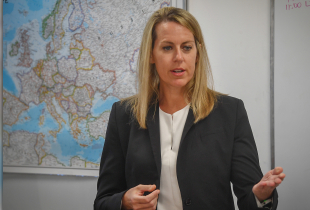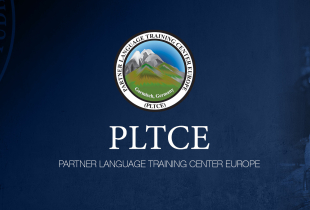PLTCE Highlights NATO Interoperability Through Its Language Standards and Assessment Seminar
By Dr. Michael W. Campbell
Partner Language Training Center Europe
George C. Marshall European Center for Security Studies
GARMISCH-PARTENKIRCHEN, Germany (July 22, 2022) – The Partner Language Training Center Europe (PLTCE), George C. Marshall European Center for Security Studies located in Garmisch-Partenkirchen, Germany, has completed the second offering of 2022 of the Language Standards and Assessment Seminar (LSAS), one of its four NATO-Approved courses. This highly interactive Seminar familiarizes participants with the NATO standards for language proficiency and introduces them to sound principles of testing in order to foster interoperability, student-centered learning, accurate assessments of student progress, and improved instructional program design.
Representing 11 nations, the group of 13 language instructors, program managers, and quality assurance professionals from defense language institutes and military academies engaged in lectures, small group projects, plenary discussions, hands-on practice in developing and reviewing assessments, and analysis of case studies on language instruction and assessment. Participants also made good use of their first visit to the Marshall Center, networking in the breakout rooms and on the hiking paths and narrow streets of Garmisch-Partenkirchen, the value-added feature of the return to face-to-face courses. As one participant noted, “The participants of this course were part of different programs and … we all had something to learn about each other and perhaps inspire each other as we did the course with the presentations, recommendations and takeaways.”
One of the silver linings of the COVID cloud remained relevant and useful. The highly effective blended approach of the course included pre-seminar assignments on GlobalNET and a virtual interactive session presented by an expert in alternative assessment in Spain. It was very well received and will continue to be an important part of the course.
During the capstone exercise, participants made sound recommendations for their national language programs based on what they learned from the Seminar and from each other, clearly a highlight of the course: “I had the opportunity to learn about other national practices related to language assessment and testing…It is great working with people that share the same preoccupation and professional concerns.”

